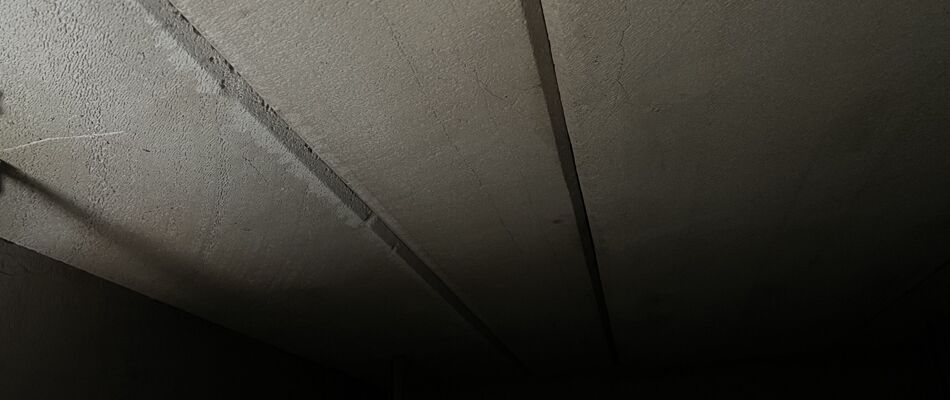React to RAAC
Back
Reinforced Autoclaved Aerated Concrete is more commonly known as RAAC - an acronym that is now becoming a cracking point of discussion within the education sector, but for all the wrong reasons. However, for the public, RAAC was an unknown – until 16 and 20 March this year. The subject was broadcast across morning and evening national television, with both ITV News and Good Morning Britain reaching key audiences with the topic. The piece investigated the risks of RAAC, but more concerningly, exposing the lack of tangible data available to the Department for Education (DfE). A study found that many institutions are unaware whether their estate contains RAAC and of their obligation to act.
RAAC is a lightweight, bubbly form of concrete that was predominantly used to construct buildings between the mid 1950s and mid 1990s, with an approximate 30-year lifespan. Due to the nature of construction, it has now been evidenced that the material is susceptible to failure. Located predominantly within roof, floor and wall structures, the risks could be catastrophic. Case studies of recorded failures date back to 2016 and 2018, at schools in Edinburgh and Kent. Fortunately, the buildings were vacant, but if occupied, the outcome could have been very different.
But why are we only hearing about this now? That is the question from many education leaders and parents alike. The increased media scrutiny, highlighting the dangers of RAAC within the public domain, has led to a series of revised guidance documents from the DfE to education establishments. But whilst guidance is available, who is responsible for acting, footing the cost for initial surveys, investigations, and potential remedial works? The DfE appear to be pushing the onus onto providers. It is advised that all establishments carry out a visual survey to confirm any presence of RAAC – there is guidance from DfE about how to do this and what to look for here. If identified / suspected, further investigation, with the engagement of a structural engineer to ascertain any remedial works would be the next stage. But who will fund any critical remedial works? If immediate rectification works are required, sixth-form establishments can access Urgent Capital Support (UCS), or for lower risk areas, Condition Improvement Fund (CIF). Both application processes involve preparing a bid application package to the DfE, requesting the required funding. Academy Estate Consultants (AEC) are a multi-disciplinary building consultancy specialising in the education sector. We have a dedicated funding consultancy team, with a proven track record of securing capital funding, and at present, we are proactively working alongside academies, sixth forms and colleges to identify and mitigate any identified RAAC, with capital funding applications underway to secure the funding required to address the risks. Whether you end up using our services or not, it is paramount that every school and college takes action now to identify and address RAAC, ensuring the estate is safe for teaching and learning.
Academy Estate Consultants are an SFCA partner and work across the education sector helping institutions with each step of their building and estates works.

